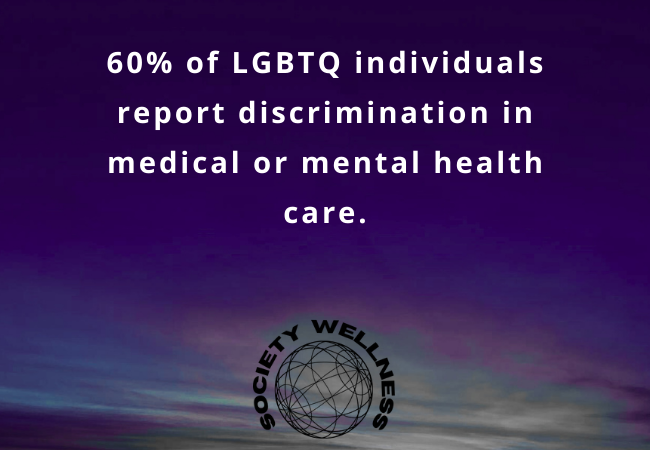In a perfect world, every mental health provider would be compassionate, culturally competent, and equipped to understand the needs of LGBTQ individuals. But in reality, many LGBTQ people walk away from therapy feeling misunderstood, unseen, or worse—actively harmed. This makes finding a queer-affirming therapist not just beneficial, but essential for effective and empowering mental health care.
At LGBTQ Behavioral Health Treatment Center Massachusetts, we offer therapy that does more than treat symptoms—we affirm identities, celebrate diversity, and create spaces of belonging. Through services like LGBTQ Therapy in Massachusetts, LGBTQ Queer Therapy in Massachusetts, LGBTQ Couples and Marriage Counseling in Massachusetts, and structured programs like LGBTQ PHP Treatment and LGBTQ Intensive Outpatient Program in Massachusetts, we deliver comprehensive, affirming care that truly understands you.
This blog explores why queer-affirming therapy is so important, how it differs from conventional approaches, and how it supports long-term LGBTQ mental wellness.
What Is Queer-Affirming Therapy?
Queer-affirming therapy is a mental health approach that acknowledges, validates, and celebrates LGBTQ identities as integral parts of an individual’s wellbeing. It’s rooted in the belief that LGBTQ individuals should never have to suppress, hide, or justify who they are in order to heal.
A queer-affirming therapist:
- Respects and uses your chosen name and pronouns
- Affirms your sexual orientation and gender identity without question
- Is trained in the unique challenges LGBTQ individuals face
- Understands the systemic and interpersonal trauma that affects LGBTQ people
- Offers a culturally safe and nonjudgmental environment
This isn’t “neutral” therapy—it’s intentional, identity-affirming, and healing-centered.
Why Finding a Queer-Affirming Therapist Is Critical
1. You Shouldn’t Have to Educate Your Therapist
Too often, LGBTQ clients find themselves having to explain basic concepts about identity, terminology, or community culture to their therapists. This is emotionally exhausting and counterproductive.
In contrast, a queer-affirming therapist:
- Already understands the difference between gender identity and sexual orientation
- Knows the emotional impact of misgendering, deadnaming, or internalized stigma
- Is familiar with various LGBTQ relationship structures and family dynamics
This knowledge means you spend less time teaching—and more time healing.
2. Affirmation Heals Where Rejection Wounds
Rejection, whether from family, community, religion, or society, causes profound emotional harm. This is especially true for LGBTQ individuals who have faced years of invalidation.
Affirming therapy works to:
- Replace internalized shame with self-acceptance
- Counteract trauma with empowerment
- Build safety in spaces where it was previously denied
This kind of healing is only possible when your identity is fully affirmed in therapy.
3. Queer People Experience Disproportionate Mental Health Challenges
Research consistently shows that LGBTQ individuals face higher rates of mental health struggles—not because of who they are, but because of how the world treats them.
The Role of Queer-Affirming Therapy in Identity Exploration
Many people enter therapy while questioning their gender identity or sexual orientation—or re-examining aspects of themselves they’ve suppressed.
Affirming therapy offers:
- Nonjudgmental space to explore identity at your own pace
- Freedom from labels unless you choose to use them
- Support for fluidity and change in how you define yourself
Therapists help you sort through internal conflict, build language for self-expression, and affirm your right to live authentically—even if your journey doesn’t follow a linear path.
Trauma-Informed, Queer-Centered Care
LGBTQ individuals are disproportionately affected by trauma, including:
- Family rejection or estrangement
- Religious-based condemnation or conversion therapy
- School bullying and cyber harassment
- Hate crimes and physical violence
- Sexual trauma and relationship abuse
At LGBTQ Behavioral Health Treatment Center Massachusetts, our queer-affirming therapists are trained in:
- EMDR (Eye Movement Desensitization and Reprocessing) for trauma processing
- DBT (Dialectical Behavior Therapy) for emotional regulation
- CBT (Cognitive Behavioral Therapy) for managing thought patterns and internalized negativity
- Somatic therapy to address trauma stored in the body
This trauma-informed approach helps you work through the past with compassion and find tools for long-term healing.
Queer-Affirming Support in Structured Programs: PHP and IOP
Some individuals benefit from more comprehensive support than weekly sessions can offer. That’s why we integrate queer-affirming care into structured mental health programs, including:
LGBTQ PHP Treatment in Massachusetts
Our Partial Hospitalization Program (PHP) is ideal for individuals facing:
- Identity-related crises
- Recent suicidal ideation or self-harm
- Severe depression, anxiety, or trauma symptoms
PHP includes:
- Daily group therapy with LGBTQ peers
- Individual therapy with affirming clinicians
- Medication management and psychiatric oversight
- Identity-focused healing workshops
Clients return home each night, balancing structure with flexibility.
LGBTQ Intensive Outpatient Program in Massachusetts (IOP)
Our IOP offers a part-time, flexible approach to treatment for LGBTQ individuals navigating:
- Chronic stress or burnout
- Relationship struggles
- Identity integration
- Recovery from trauma
IOP includes:
- Multiple sessions per week of affirming therapy
- LGBTQ mental health groups focused on coping, expression, and identity building
- Skill-based sessions for navigating dysphoria, coming out, or workplace stress
All programming is led by therapists trained in LGBTQ Queer Therapy in Massachusetts—so your care is never generic, but always culturally competent.
LGBTQ Couples and Family Counseling: Support for Queer Relationships
Relationships within the LGBTQ community often face stressors that heterosexual couples may not:
- Family rejection of one or both partners
- Navigating gender transitions within the relationship
- Polyamory, open relationships, or non-traditional dynamics
- Differing levels of outness
Our LGBTQ Couples and Marriage Counseling in Massachusetts supports all relationship models and provides affirming care for:
- Improved communication
- Conflict resolution
- Navigating change or transition
- Rebuilding intimacy and trust
We also offer family therapy to support parents, partners, or loved ones of LGBTQ individuals, creating space for understanding and growth.
What Happens When Therapy Isn’t Affirming?
Sadly, many LGBTQ individuals have had harmful or invalidating experiences in therapy, such as:
- Being told their identity is a “phase” or “confusion”
- Being pressured to conform to binary gender norms
- Having trauma ignored because the therapist wasn’t trained in LGBTQ experiences
- Feeling erased by heteronormative assumptions
These experiences don’t just delay healing—they can deepen shame and distrust. Queer-affirming therapy is the antidote to this harm.

What Does It Feel Like to Work with a Queer-Affirming Therapist?
Here’s what LGBTQ clients often say when they find the right therapist:
- “I don’t have to explain myself constantly anymore.”
- “For the first time, I feel safe talking about my gender and sexuality.”
- “I can bring all parts of me to therapy and not be judged.”
- “My therapist gets it—and that makes all the difference.”
This safety is not accidental. It’s built through intentional, affirming care.
Why Choose LGBTQ Behavioral Health Treatment Center Massachusetts?
We are proud to be one of the few mental health treatment centers in Massachusetts dedicated exclusively to the needs of LGBTQ individuals.
Here’s what you can expect with us:
- Queer-affirming, trauma-informed clinicians
- LGBTQ-identified therapists on staff
- Individual therapy, couples therapy, and structured programs
- Safe, inclusive spaces for all gender identities and orientations
- Compassionate support at every stage of identity and recovery
Whether you’re navigating depression, trauma, dysphoria, burnout, or family stress—we meet you with empathy, expertise, and affirmation.
Conclusion
Your identity is not a disorder. Your truth is not up for debate. And your healing should never require you to shrink or explain who you are. With the right support, you can process pain, navigate complexity, and move forward with clarity and pride. Call us today at 888.964.8116 Let us help you find a queer-affirming therapist, group, or program that’s right for you. At LGBTQ Behavioral Health, your story is safe here.
FAQ on Queer-Affirming Therapist
What is a queer-affirming therapist?
A queer-affirming therapist is a licensed professional who offers inclusive, identity-affirming mental health care tailored to LGBTQ individuals’ unique experiences.
Why is it important to work with a queer-affirming therapist?
They offer a safe space to explore identity without judgment, address trauma specific to LGBTQ experiences, and help build resilience, pride, and emotional well-being.
How do queer-affirming therapists differ from traditional therapists?
Queer-affirming therapists use inclusive language, understand LGBTQ culture, validate all identities, and are trained in minority stress and trauma-sensitive care.
Can queer-affirming therapy help with gender or identity exploration?
Yes. It provides support for exploring gender identity, sexual orientation, fluidity, and transitions—without pressure or assumptions.
What services are available in Massachusetts for LGBTQ therapy?
LGBTQ Behavioral Health offers individual therapy, couples counseling, and structured programs like PHP and IOP, all led by queer-affirming clinicians.
Is there LGBTQ couples therapy available in Massachusetts?
Yes. We offer LGBTQ Couples and Marriage Counseling in Massachusetts, focused on intimacy, communication, gender transition, and relationship dynamics.
What’s the difference between LGBTQ PHP and IOP programs?
PHP offers full-day care for acute mental health needs, while IOP is part-time and ideal for ongoing support—both integrate queer-affirming therapy.
Can queer-affirming therapy help with trauma and depression?
Absolutely. Therapists use evidence-based practices to help clients process trauma, reduce depression, and build coping skills within an LGBTQ-affirming space.

